Pakistan’s former military dictator, Gen Pervez Musharraf, has ended his nearly five year long self-exile to return home to a tepid welcome by a handful of die-hard supporters and what was clearly a ‘rent-a-crowd’ bunch of people. While his return did have some news value, the sort of excitement on display on Indian TV channels was completely missing on Pakistani airwaves. Musharraf might make for good TV but to imagine that he is a serious player in Pakistan's politics is to stretch the limits of incredulity.
In a sense, Musharraf’s return has illustrated two phenomenon, one in India and the other in Pakistan. The Indian interest in Musharraf is nothing if not a stark comment on the astounding ignorance about Pakistan's politics. On the other hand, Musharraf’s self-portrayal and self-belief that he remains popular in Pakistan, that he has a role to play in Pakistan's politics and its future, and that he will prove to be Pakistan's saviour, is reflective of the climate of denial that is pervading Pakistan's state and society. Apart from megalomania, which is primarily borne out of a delusionary state of mind, Musharraf also seems to be suffering from the ‘manifest destiny’ complex. He is quite clearly suffering from the withdrawal symptoms of a person who from being the toast of the international community has now been toasted by being consigned to the dustbin of history.
Politically, Musharraf is a complete non-entity. On his own, he is incapable of winning even a Resident Welfare Association election. Far from playing a pivotal role in Pakistani politics, which will be possible only if he can manage to win more than a handful of seats in the National Assembly, Musharraf will be extremely lucky if he can even win his own seat without the crutches of support from a party like the MQM. His own party, All Pakistan Muslim League, exists only on paper and has no presence on the ground. No surprises then that Musharraf, who points to hundreds of thousands of ‘friends’ on his Facebook page and ‘followers’ on Twitter as a measure of his popularity, is lampooned by his detractors who say that he might be a leader in the ‘Islamic Republic of Facebook’ but is a non-entity in the Islamic Republic of Pakistan.
What Musharraf doesn’t seem to understand or at least refuses to acknowledge because of his faux bravado is that deposed dictators are like expired medicine, or worse, used toiler paper: no one has any use for them and hence they are best discarded. Pakistani society, in spite of its obsession with Islam, is metaphorically at least, quite unabashed in its worship of the rising sun. Musharraf’s sun has set and the legions that were at his beck and call when he was at his zenith are nowhere to be found. If anything, associating with him is a huge political liability which no active politician can afford. In order to understand Musharraf’s prospects in Pakistan, all that needs to be done is study the fate of Field Marshal Ayub Khan and Gen. Yahya Khan after they were deposed. Also instructive is the pathetic state of Gen Aslam Beg after he retired. When he was at the helm of the army, Beg was pretty much the master of all he surveyed. After retirement he formed a political party which is so irrelevant that probably even Beg doesn’t remember its name.
Musharraf could well be harbouring the misconception that the terrible record of governance of the PPP-led coalition would have made the people of Pakistan hanker for his return at the helm of affairs. But what he has not taken into account is the fact that even though there is a lot of public anger against the PPP-led coalition, hardly anyone in Pakistan is remembers Musharraf fondly. His name is still mud, and he is still blamed for all the existential crises that Pakistan is facing. Given such a climate of hostility, even if he wins his own seat in National Assembly, he will be subjected to the sort of indignities by his fellow lawmakers which he will find difficult to digest. Remember, as President, he refused to address the Parliament (despite it being a constitutional requirement) because of the fear that the opposition would indulge in sloganeering against him.
While it is a no brainer that he is not a serious player in Pakistan's politics, the threats that he faces to his life and his liberty are quite serious. His old institution, the army, isn’t quite comfortable with his return and in fact is believed to have tried to dissuade him from returning. One reason for this is that if the cases against Musharraf were to be opened in the Courts, it could drag in the current top brass which was equally culpable for the actions of Musharraf. Another reason is that the Army will not like to see Musharraf being put behind bars, but will also find it difficult to stop the Courts from doing this. His return also confronts the Pakistani judiciary, which has been quick on the draw against politicians, with a dilemma. There are very serious charges against Musharraf including treason (the emergency he declared in 2007), murder (Akbar Bugti’s killing), conspiracy (Benazir Bhutto assassination) and mass murder (Lal Masjid operation). If in the face of these cases the judiciary doesn’t take action against Musharraf, it will open itself to the charge of having kowtowed to the Army; if they take action against him, it will incur the hostility of the military.
But more than the predicament of the military and the judiciary, it is the threat to his life from the Islamist terror groups that simply cannot be ignored. The Tehrik-e-Taliban Pakistan has already announced that it has prepared a special squad to kill Musharraf. Also baying for his blood are the heirs of Akbar Bugti, Baloch insurgents, sectarian groups like Lashkar-e-Jhangvi with links with the TTP and Al Qaeda, and the Lal Masjid affectees (also with links with TTP and Al Qaeda). Given that he will no longer enjoy the sort of security that he did when he was head of state and army chief means that Musharraf will be extremely vulnerable. He would therefore save many people a lot of trouble if he was to leave Pakistan once again. But if he has decided to make his final stand in Pakistan, then chances are that it won’t be long in coming.
Published Date: 26th March 2013

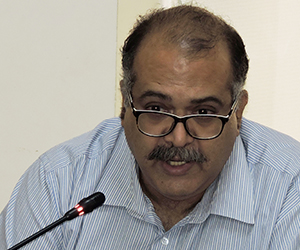

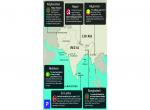
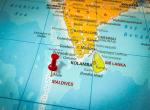


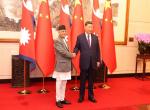
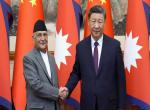

Post new comment